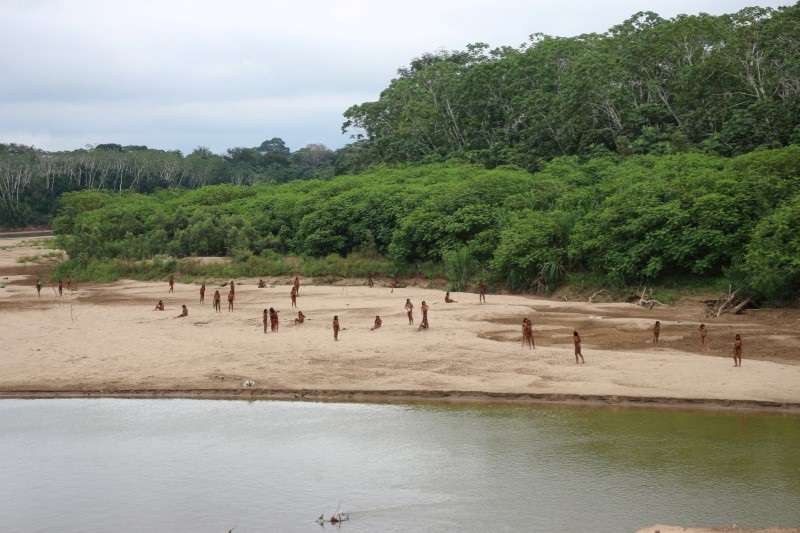Clash between isolated indigenous group and loggers leaves two dead in Peru's Amazon

Clash between isolated indigenous group and loggers leaves two dead in Peru's Amazon
Two loggers in Peru's Amazon have been killed and two others are missing after a clash with the Mashco Piro, an indigenous community that has long isolated itself, a local advocacy organization said Tuesday.
The clash occurred on Thursday in an area of the Madre de Dios region when workers who were opening a trail in the forest, were attacked with arrows by members of the tribe, according to Daniel Pena, a spokesperson of FENAMAD, an organization that represents more than 30 communities in the region and has previously lobbied the government to protect the Maschco Piro's forest.
The Ministry of Culture reported the incident on Monday night and said it was investigating the case along with the prosecutor's office and police. In a statement, the ministry said the clash "may have caused deaths, injuries and disappearances" on behalf of a logging company.
FENAMAD said in a statement on Monday that the confrontation occurred in an area near the Pariamanu River, that is part of the Mashco Piro territory, where at least two workers were killed by arrows, another was injured and two are missing.
Members of the Mashco Piro have been seen outside their territory in recent months, according to images released by the NGO Survival International, which said the community is under massive pressure from the logging industry.
At least four people, including workers and residents of the area, have died between 2015 and 2022 in clashes with the Mascho Piro, according to the Ministry of Culture.
This article was produced by Reuters news agency. It has not been edited by Global South World.